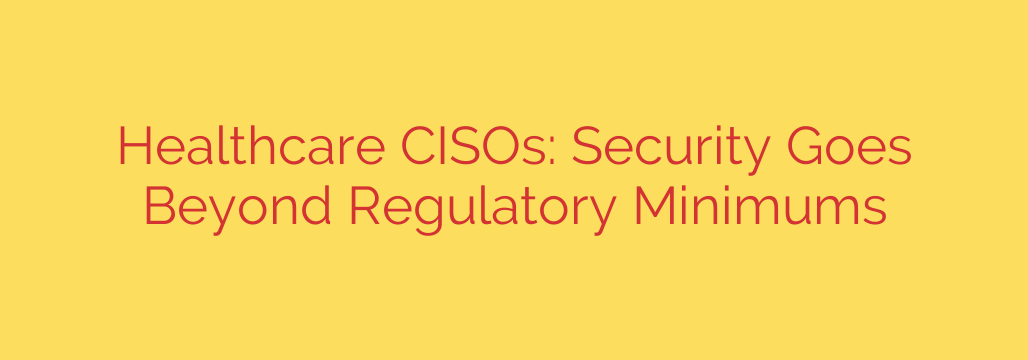
In the evolving landscape of healthcare, the role of the Chief Information Security Officer (CISO) is becoming increasingly critical. While regulatory compliance serves as a fundamental baseline, simply meeting minimum requirements is no longer sufficient to protect sensitive patient data and ensure patient safety.
Today’s threat landscape demands a more sophisticated, proactive approach to cybersecurity. Healthcare organizations handle incredibly sensitive information – electronic health records, billing information, and proprietary research. This makes them prime targets for cyberattacks, ranging from ransomware and data breaches to sophisticated phishing schemes.
Effective risk management in healthcare goes far beyond ticking compliance boxes like HIPAA. It requires a deep understanding of potential vulnerabilities, both technical and human. CISOs must foster a culture of security throughout the organization, ensuring all staff understand their role in protecting data.
Investing in advanced security technologies, implementing robust access controls, conducting regular vulnerability assessments, and developing comprehensive incident response plans are all essential components of a strong security posture. Crucially, this posture must adapt constantly to new threats.
Ultimately, the goal is not just to avoid penalties but to build trust with patients and safeguard the continuity of care. A data breach can have devastating consequences, impacting patient well-being and the organization’s reputation and financial stability. By prioritizing cybersecurity as a core operational function, healthcare CISOs lead their organizations towards a future where data protection is woven into the fabric of healthcare delivery, ensuring resilience against modern threats.
Source: https://www.helpnetsecurity.com/2025/07/03/henry-jiang-ensora-health-healthcare-devsecops-strategy/








